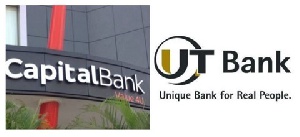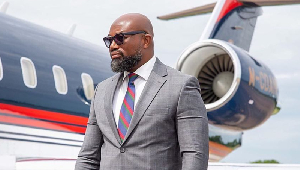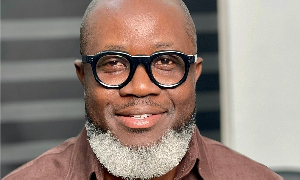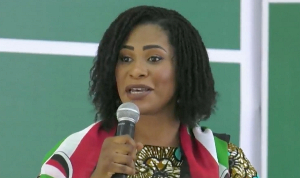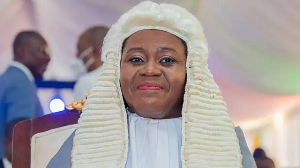I am just recovering from the shock of the economic coup d'état that fulminated the existence of UT and Capital Banks and these banks on a silver platter to GCB Bank limited.
My shock comes as a result of the military approach adopted by the BoG to affect the Purchase and Assumption transaction approval.
The BoG, with the approval of the Government, on Monday 14th August, sent policemen and Personnel from the auditing firm PricewaterhouseCoopers to seal off the premises of UT and Capital Banks to prevent these banks from undertaking their daily operations until 1 pm.
By this time workers and the public had been made aware that the affected banks had had their licences revoked and their assets transferred to GCB, and most offices of the affected Banks had been re-branded as GCB.
If these had committed some grievous financial offences in a sudden manner, I will understand the coup approach adopted by the BoG. But the rationale for the take-over of the toils of the shareholders of the banks is, according to the BoG, "due to severe impairment of their Capital."
The BoG further states that they "made efforts to help UT Bank and Capital Bank recover via private alternatives; however, the banks were unable to develop an acceptable plan. After exhausting all other alternatives, the BoG has chosen to resolve them via the least costly method of a Purchase and Assumption transaction to protect depositors’ funds."
The affected Banks were private entities, so what private alternatives were they pushing the banks to use in the recovery process? Did the BoG exhaust all other alternatives including state/public and foreign investor options?
Is it true that foreign investors expressed interest and were willing to recapitalise at least one of these banks but the BoG refused, with the pretext of preference of the recapitalisation being done by an indigenous bank? Which other three banks were involved in the negotiations?
Can the BoG come out with the total liability of both banks? We Ghanaians are the majority owners of GCB Bank limited and have the right to know how much bad debts we are assuming by the purchase of these banks. GCB, in principle, is no better 'debt-recoverer' than any of the two banks whose licences have been revoked, and as such, I can wager that at least 50% of the total debts of these banks that have been acquired would be written off. Who pays the bad debt?
This operation stinks. Was it an operation to help friends recover their monies whilst washing their hands off their debts opting for a purchase executed with public funds? Was it a ploy to make GCB bigger and later sell it to their friends as they did in the $2.2 billion bond issuance earlier this year?
Fellow Ghanaians, the guys at the helm of affairs of Ghana's economy and finance are trained stock market operators. Their interest is in enriching themselves and their friends through non-traditional corrupt acts like the one we witnessed in the 2.2 billion bond case.
My prediction is that in a space of a year, we will be witnessing the offloading of state/public shares of GCB to a foreign buyer (who will turn out to be a business associate of the stock brokers).
Let us stand up and fight against such coups. Let transparency reign in the affairs of the nation. The Bog has instruments it could have used to save UT and Capital Banks if their interest was to save it.
Opinions of Tuesday, 15 August 2017
Columnist: Yaw I Ntim

